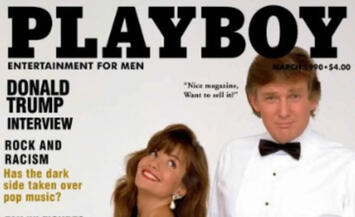
The Republican Party’s 2024 platform removed language calling for a national ban on abortion, causing consternation among social conservatives.
But this should surprise no one. The emergence of a post-religious right less concerned with social conservative causes is exactly what should be expected in a Negative World.
As I wrote in my book Life in the Negative World:
Because since the 1980s evangelicals have been closely aligned with political conservatism and the Republican Party, it’s easy to conflate the prospects of evangelicalism with the prospects for Republican electoral victory. The Republican Party is in a period of turmoil, but it clearly has a large following. It’s easy to imagine scenarios in which Republicans control the presidency, Congress, and most state houses. In fact, many states are already overwhelmingly Republican controlled. But Republicans winning electoral majorities doesn’t mean evangelical Christians are a majority, or that the Republican Party will advance evangelical religious priorities, or that Republicans will even in many cases defend evangelical church teachings against a skeptical culture. [emphasis added]
We see just this scenario playing out. While Donald Trump may not win in November, he certainly looks very competitive. Republicans are also going to be competitive in both chambers of Congress.
But abortion restrictions have proven to be an electoral loser. They also have no major donor constituency or support from other powerful interest groups. Hence in the inherently pragmatic world of politics, the Republican Party is going to jettison those positions like abortion restriction that cost them votes (and potentially elections).
Also, growing numbers of people on the right are themselves no longer personally religious or socially conservative. This has long been true of a large number of leaders, but has spread to much of the base as well.
I noted that Donald Trump’s base was made of cultural conservatives, not social conservatives. Their priorities are immigration, trade, and wars, not abortion or sexuality issues.
Young conservatives especially are more likely to be into a sort of Barstool lifestyle than anything traditional. They don’t like wokeness. They certainly don’t like anti-white ideologies, or, for the men, anti-male ideologies. But they definitely aren’t interested in any social conservatism either.
Read the rest of this piece at Aaron Renn Substack.
Aaron M. Renn is an opinion-leading urban analyst, consultant, speaker and writer on a mission to help America's cities and people thrive and find real success in the 21st century. He focuses on urban, economic development and infrastructure policy in the greater American Midwest. He also regularly contributes to and is cited by national and global media outlets, and his work has appeared in many publications, including the The Guardian, The New York Times and The Washington Post.
Photo: courtesy Aaron Renn.












